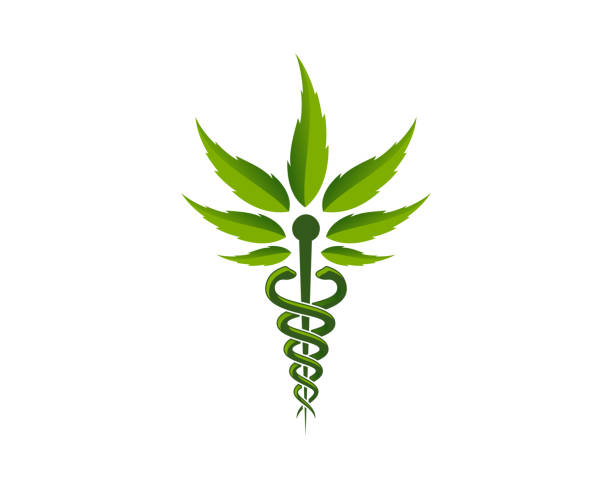Steps to Safeguard Your Medical Cannabis Card for Optimal Health Benefits
Shedding Light on What Medical Marijuana Can Cure: an In-Depth Analysis of Its Therapeutic Qualities
In recent years, there has been a growing passion in the therapeutic capacity of medical marijuana. While unscientific evidence abounds, a comprehensive examination of the scientific information pertaining to the performance of medical cannabis in dealing with these conditions is required.
Persistent Discomfort Management
Chronic pain administration stays a crucial aspect of treatment, necessitating a detailed technique for reliable therapy. Recently, medical cannabis has actually become a prospective therapeutic choice for individuals experiencing chronic discomfort problems. The endocannabinoid system, which plays a critical duty in pain inflection, has been targeted by cannabis-based therapies to relieve signs and enhance lifestyle for people.

In addition, clinical marijuana uses an appealing alternative for people that experience unbearable negative effects from traditional discomfort medicines. Its capacity to attend to pain via a various device makes it an important enhancement to the toolbox of treatments readily available for persistent pain monitoring.
Epilepsy Treatment Potential
Clinical cannabis has actually shown appealing possibility in the treatment of epilepsy, offering a novel therapeutic strategy for handling seizures in people. Epilepsy is a neurological condition identified by recurrent seizures, influencing people of any ages. Typical treatments for epilepsy consist of antiepileptic medicines, but these medicines may not work for all individuals and can have significant negative effects.
Study on the use of clinical marijuana for epilepsy has exposed motivating results. Cannabidiol (CBD), a non-psychoactive compound located in marijuana, has been especially highlighted for its anticonvulsant homes. Researches have shown that CBD can reduce the frequency and intensity of seizures in people with treatment-resistant forms of epilepsy, such as Dravet syndrome and Lennox-Gastaut disorder.
Moreover, the FDA has actually approved a CBD-based medication, Epidiolex, for the treatment of seizures linked with these severe forms of epilepsy. This turning point underscores the expanding recognition of clinical marijuana as a useful therapeutic option for managing epilepsy and offers expect clients that have actually not reacted well to traditional treatments.
Queasiness Alleviation Perks
The relief of queasiness through the use of marijuana has been progressively acknowledged for its restorative benefits in different medical conditions. Nausea or vomiting and throwing up are usual signs and symptoms experienced by people going through chemotherapy, those with gastrointestinal disorders, and people with persistent pain conditions. Clinical cannabis, with its energetic compounds such as THC and CBD, has actually shown guarantee in giving alleviation from queasiness.

Moreover, medical cannabis offers an all-natural option for individuals who do not react well to conventional anti-nausea medications or that experience extreme side impacts from these medications. Clients undergoing radiation treatment, in specific, have actually reported considerable enhancements in their quality of life when making use of cannabis to take care of queasiness. As research study around remains to expand, clinical marijuana is significantly being thought about as a beneficial choice for nausea alleviation in different clinical setups.
Anxiousness Decrease Impacts
Studies have actually shown the capacity of marijuana in decreasing anxiousness signs and symptoms via its interaction with the endocannabinoid system. The endocannabinoid system plays a crucial duty in regulating feelings, including anxiety, by preserving homeostasis in the body. Cannabinoids in marijuana, such as THC and CBD, communicate with the endocannabinoid receptors in the brain, specifically the CB1 and CB2 receptors, to regulate anxiety-related responses.

People with problems like generalized stress and anxiety condition (GAD), social stress and anxiety problem, and trauma (PTSD) may take advantage of the anxiolytic properties of cannabis (Medical Cannabis Clinic). Further research is needed to figure out ideal does, shipment techniques, and long-lasting results on anxiousness management.
Potential for Swelling Control
With its well-known anti-inflammatory residential properties, marijuana has actually revealed pledge in possibly managing swelling within the body. Inflammation is the body's natural reaction go to these guys to injury or infection, but when it ends up being chronic, it can contribute to different diseases such as arthritis, inflammatory bowel disease, and even heart disease. Research recommends that the cannabinoids located in marijuana, such as THC and CBD, can aid minimize and manage the immune reaction inflammation.
Researches have actually shown that marijuana can engage with the endocannabinoid system, which plays a vital function in regulating swelling. By targeting the cannabinoid receptors, marijuana compounds can modulate the immune response, bring about a decline in inflammation degrees. This makes marijuana a prospective candidate for taking care of inflammatory conditions where conventional treatments have actually dropped short.
In addition, cannabis-derived items like CBD oil have gotten popularity for their anti-inflammatory homes, with several people using them as an all-natural treatment for conditions connected with inflammation. While more research study is needed to totally understand the mechanisms behind marijuana's anti-inflammatory impacts, existing findings reveal promising outcomes for the potential use clinical marijuana in controlling swelling.
Final Thought
In verdict, medical marijuana has shown encouraging therapeutic properties in handling persistent pain, dealing with epilepsy, eliminating nausea, minimizing anxiety, and managing inflammation. Its prospective advantages in various medical problems highlight the value of further research study and expedition right into its medicinal use. The evidence suggests that medical cannabis could be a useful choice treatment option for individuals seeking remedy for a variety of conditions and signs.
In recent years, medical cannabis has emerged as a prospective restorative alternative for individuals suffering from chronic discomfort helpful resources conditions.Medical cannabis has shown appealing possibility in the therapy of epilepsy, supplying a novel restorative method for taking care of seizures in patients. As research in this area continues to grow, medical cannabis is progressively being taken into consideration as a beneficial alternative for nausea or vomiting relief in various medical settings.
In verdict, clinical marijuana has revealed encouraging restorative residential or commercial properties in handling chronic pain, treating look at here now epilepsy, alleviating nausea, decreasing anxiousness, and controlling swelling. The proof suggests that clinical marijuana can be a useful option treatment option for patients seeking alleviation from a variety of conditions and symptoms.